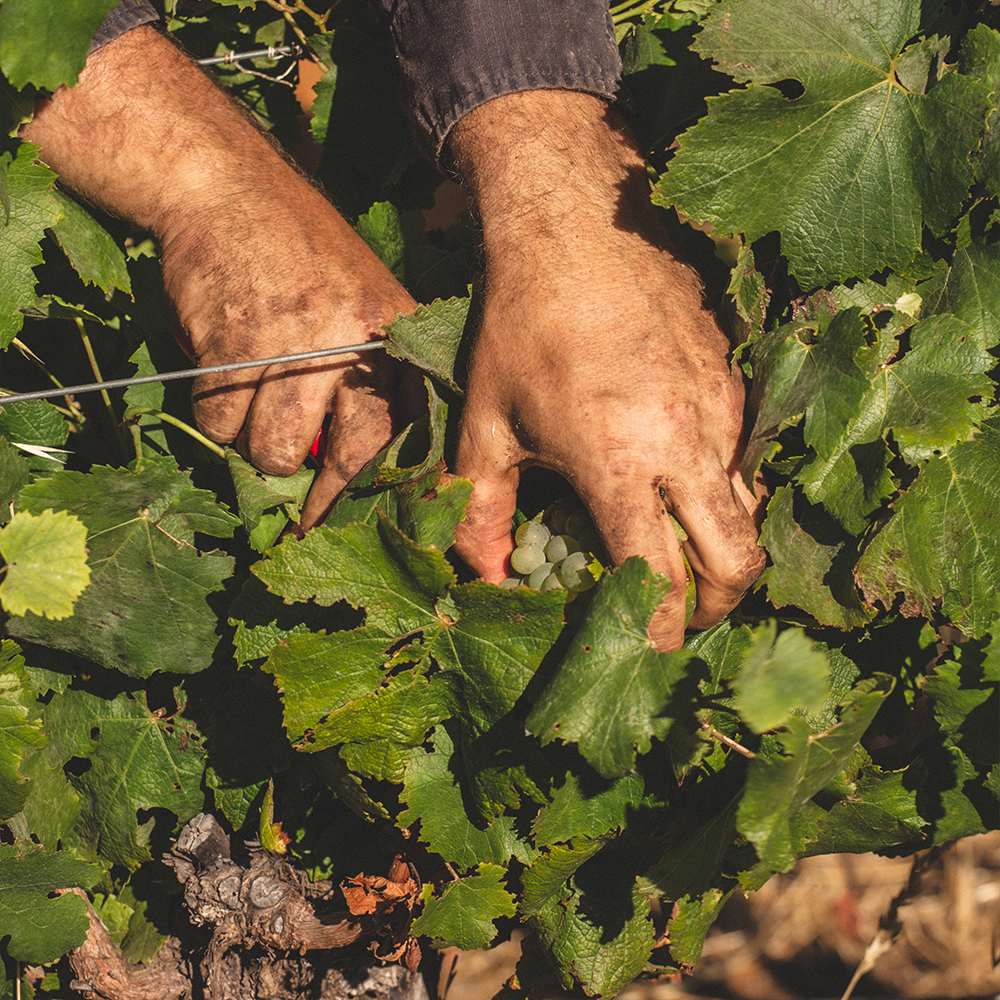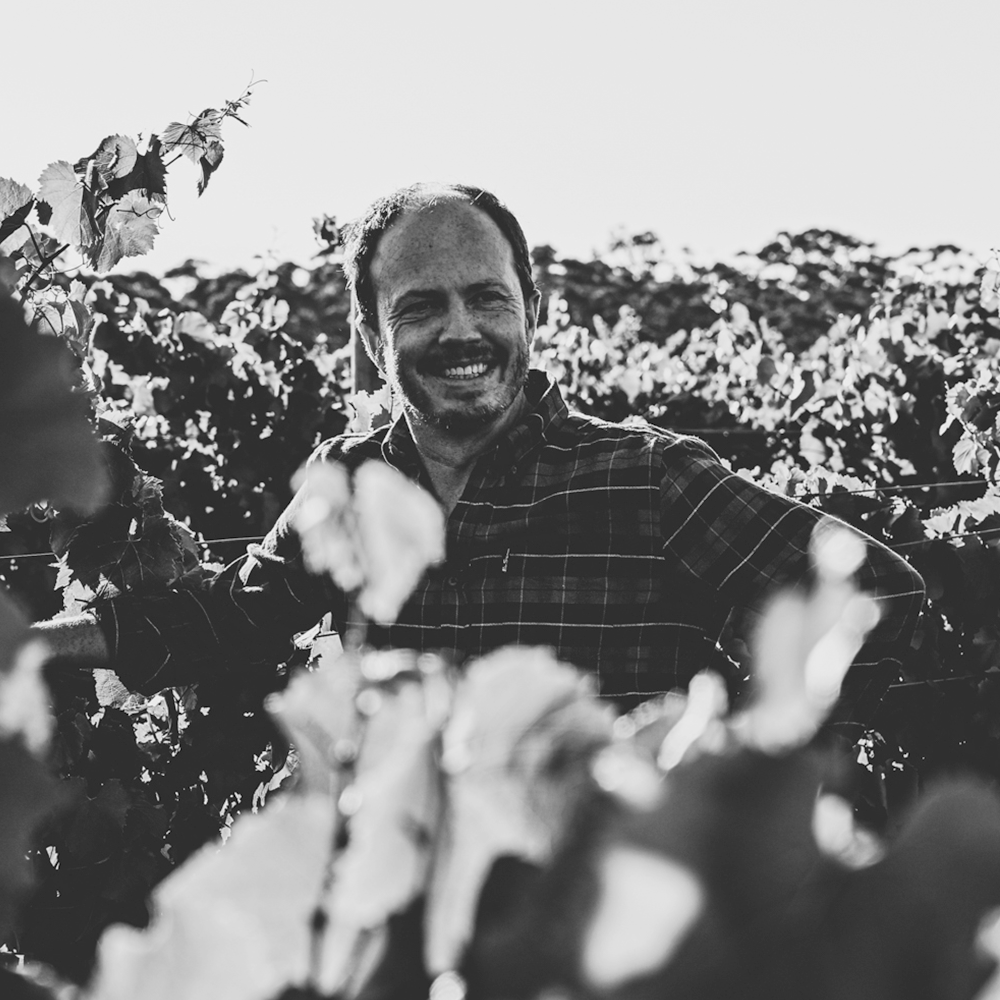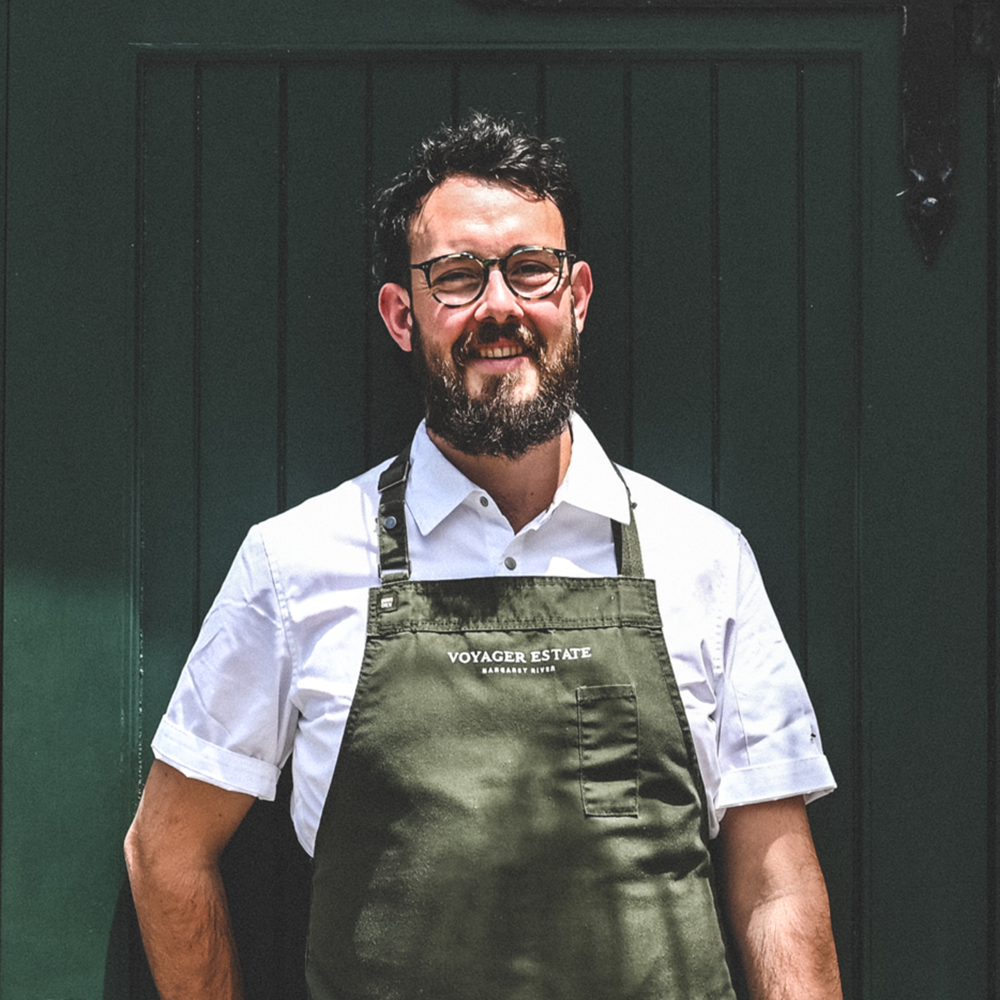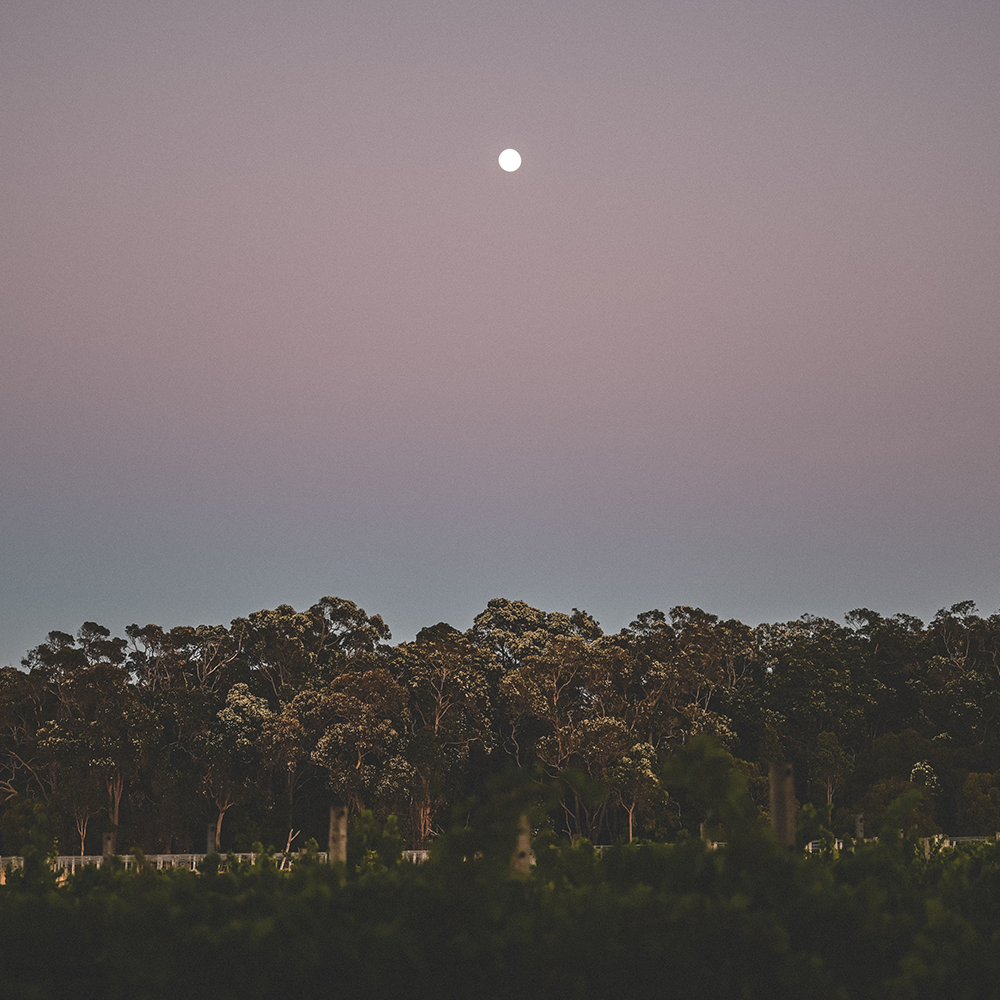Blog
VINTAGE VIGNETTES: WEEK ONE
Welcome to the first in our series of snippets straight from Chief Winemaker Tim Shand, revealing all the magic and momentum of our first certified organic vintage...
"It was all smiles in the winery and vineyard as we finished up week one of Vintage 2023! The sunny, dry spell that commenced in November shows no sign of abating, and we’ll harvest all our Chardonnay fruit in perfect conditions.
Picking commenced on Wednesday in Broadvale Block 6 with our Clone 95 Chardonnay. A universal truth of white grapes is that your best vineyards ripen first and that was the case again this year. Flavour (lime, pear drop...) came at low baumés as well as a lovely acidity – a sure sign of a standout vintage.
On Thursday, we moved over to Broadvale Block 5 – the Gingin Clone. The first pick in this larger block is in the western end, which sees the most sun in the afternoon. The block copped an early weevil attack in spring, but quick work from Glen and the team saw a Lazarus-like recovery! Flavours here are more toward the lemon spectrum, with some fig notes in the more exposed bunches. Again, we couldn’t have dialled up the press analysis any better with tight but refreshing acidity in the juice, and a lovely green hue.
Warm days and cold nights continued into day three and four of harvest, appreciated by the Chardonnay vines and harvesting humans alike! Broadvale Block 12 Clone P58 (planted in 2016), which has traditionally gone into Coastal Chardonnay, showed glimpses throughout the growing season that it has come of age. The fruit is going into the press as we speak, and has a nice mix of barrels laid out for filling later in the day. Fingers-crossed it will make its debut in the Voyager Estate blend this year.
Looking forward, by mid-next week, we’ll have broken the back of the Chardonnay pick and will be tentatively looking at Sauvignon Blanc for a start date. With the ideal conditions we’ve had, reds will be knocking on the door as well. Birds remain a constant threat as the Marris have failed to blossom thus far, but with nets going out fast there’s no complaints and plenty of optimism here."
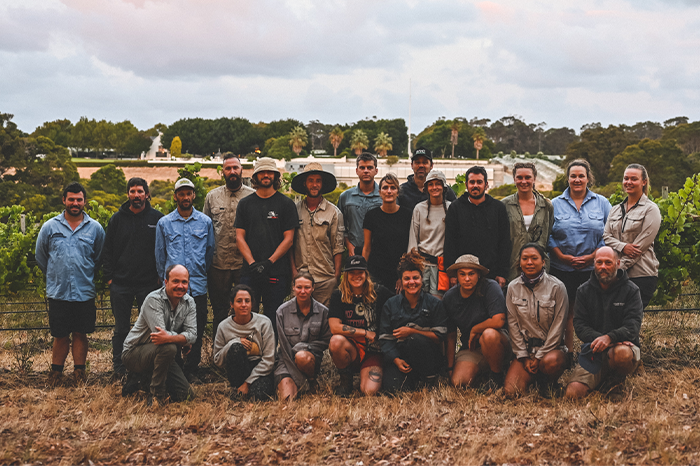
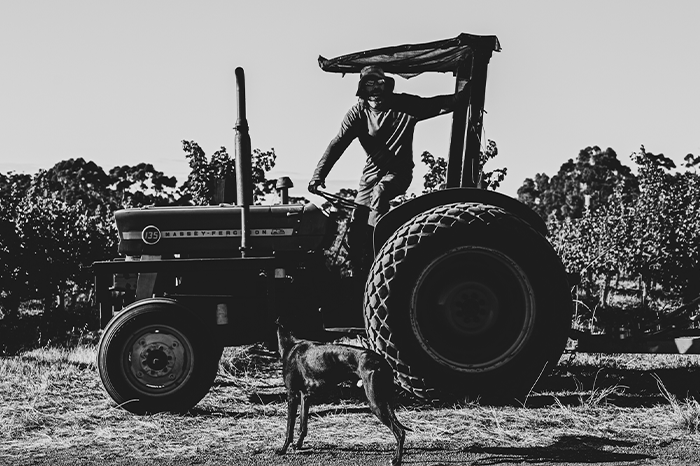
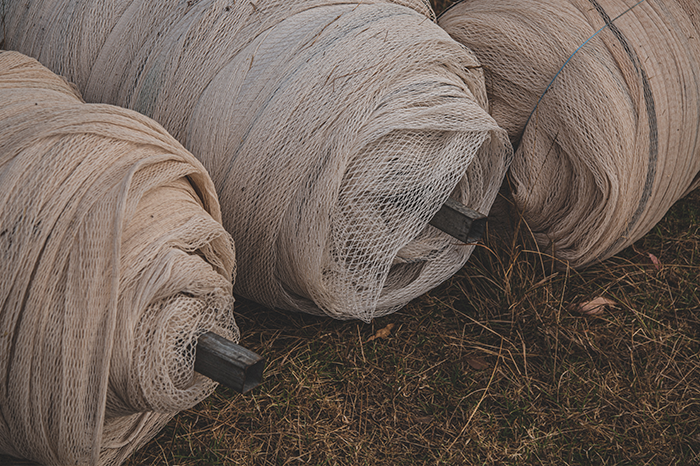
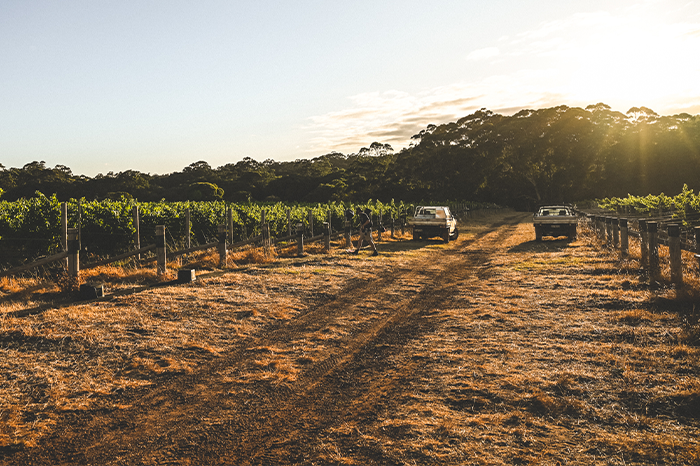
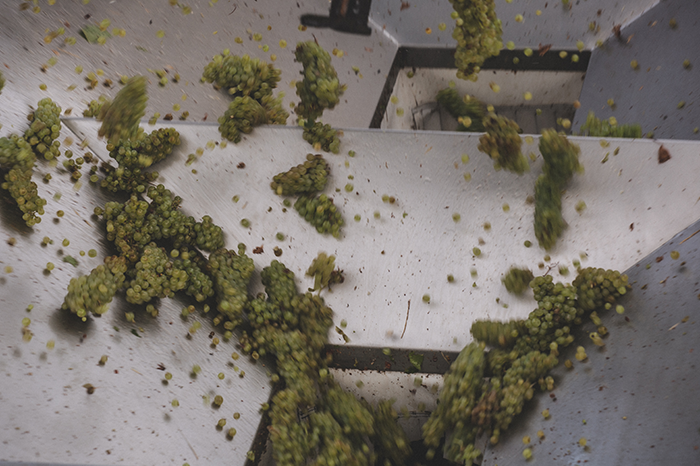
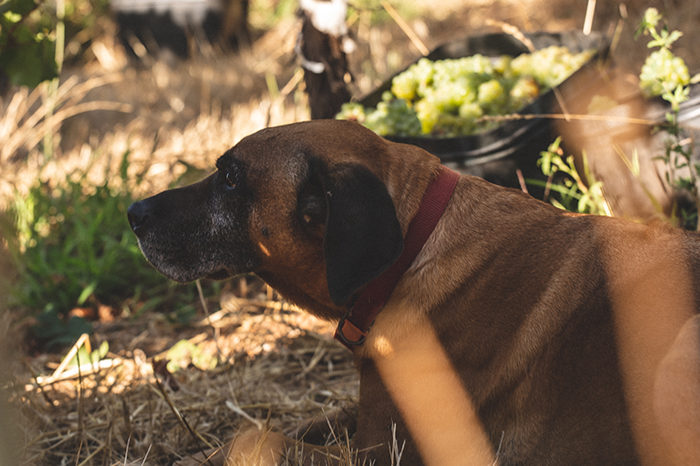
Q&A WITH TIM: PART TWO
Get to know our new Chief Winemaker in a two-part series of rapid fire questions, designed to delve a little deeper into Tim's background, passion and vision for Voyager Estate.
How does Cabernet from the Yarra Valley differ from Margaret River?
Cabernet from the Yarra Valley has fine and approachable tannins, even when young. The flavour profile is red fruits in cooler years, leaning toward blackcurrant and black olive in warmer years, and always with a light frame. By comparison, Margaret River Cabernet is intense and concentrated, with tannins to match. Finding the gentleness and harmony in all that strength will be a worthy task.
How does Chardonnay from the Yarra Valley differ from Margaret River?
Chardonnay from the Yarra Valley has a fine-boned structure and is reliant on the linearity of acid from the cooler climate. The flavours of Margaret River Chardonnay are more abundant, with the potential for great stature and longevity. Vive la difference, as they say!
Will your experience in the Yarra Valley inform your winemaking in Margaret River?
I am pondering that with the cooler sub-climate of Stevens Valley, there may be a little to be taken from both worlds to harness fruit power with a gentle line of savouriness.
The most incredible wine you've ever tasted?
The 1978 Domaine Dujac Clos de la Roche from Burgundy on my thirtieth birthday. The bottle was drawn from the iconic Dujac cellar – a typically generous act of the Seysses family. It completed the greatest day of my life. If my wife and kids are reading this…I’m sorry! I’ve had three children, but only one 1978 Grand Cru Burgundy!
Looking ahead, what are you most curious about?
The potential to push the envelope with avant-garde winemaking techniques applied to Voyager Estate’s high-calibre fruit.
How would you describe your winemaking philosophy?
I believe winemaking is more of a craft than an art, like jewellery or carpentry, because the beauty of the final product is limited to the quality of the raw materials. If there are artists at all in the wine, then the credit should go to the vines and the yeasts. The craft lies in respecting these core materials and understanding how to guide them on their way to bottle. If a winemaker ever tells you they’re an artist, then they’re a b******t artist!
INTRODUCING TRAVIS CRANE
We are thrilled to welcome Travis Crane, who has taken the helm as Head Chef at our celebrated signature restaurant.
With a career spanning kitchens across Australia and the world, Travis joins the Voyager team from his role as Executive Chef at remote luxury accommodation Finniss River Lodge in the Northern Territory and, before that, as Executive Chef of Brisbane's City Winery restaurants.
Travis will continue the established wine-led vision of the award-winning restaurant, with menus that capture an honest and memorable snapshot of the unique land and region, as well as highlighting Margaret River’s small-scale, ethical and sustainable producers. This approach aligns wholly with Travis's deep passion for provenance-focused cooking, ignited by his time at Belgium’s Michelin-starred restaurant In De Wulf and continued through his work at The Barrelroom and Larder at Ballandean Estate in Queensland.
“My philosophy is to source thoughtfully, cook respectfully, and present beautifully,” says Crane. “Joining Voyager Estate as Head Chef gives me the opportunity to create food that tells the story of our region and what we believe in, and present guests with a more sustainable way to eat. I am also excited to work with Sommelier Claire Tonon and the Voyager winemaking team to create dishes that showcase their stunning wines.”
Voyager Estate Proprietor Alexandra Burt is thrilled to welcome Travis to the team saying, “A compulsive forager, even on his days off, Travis’s considered and deeply creative style fits hand-in-glove with our wine-first approach to menu design, as well as being a great fit for our team. Travis picks up the baton to take the Voyager Estate restaurant to the next level, which is exciting for us and our guests alike.”
The Voyager Estate restaurant offers immersive, wine-led tasting menus. Changing with key seasonal milestones in the vineyard, our dishes showcase the freshest ingredients from favoured local farmers and producers, with chef and sommelier working closely together to create flavour pairings that provide a sense of place in Margaret River.
Our latest menu, BACCA [Latin: Berry], has been created by Travis in collaboration with Sommelier Claire Tonon and brings together the region’s finest sustainable produce for a colourful culinary evolution inspired by the grapes as they ripen through late summer. Highlights include Octopus, Rhubarb, Rose; Zucchini, Mussels, Citrus; Kangaroo, Mulberry, Macadamia, Saltbush; Pork, Beetroot, Black Garlic.
TALKING CLIMATE ACTION
Climate action, net zero, carbon positive… or is it carbon negative? It seems like there is a different variation everywhere we turn. Has it all been built up too much? Unfortunately, no. Climate change is happening faster than expected and climate action is needed, more than ever.
In our southwestern corner of Australia, we are grateful to live in a region with such healthy natural abundance. Still, the impact of extreme weather events like spring hailstorms, reduced winter rainfall, and intense summer heat spikes are a threat to our unique ecosystems.
Margaret River is a wine paradise, but these world-class wines are inextricably linked to climate. At Voyager Estate, we have long focused our attention on land restoration and catchment preservation. With every block transitioning to Certified Organic in 2023, the team’s environmental efforts have been led by land and vine health.
Late last year, we joined International Wineries for Climate Action (IWCA). In good company, we leapt into a new frontier of looking beyond our beautiful valley and outward to the impact our practices have on a regional and global scale.
IWCA was founded in February 2019 by Familia Torres and Jackson Family Wines, two leading families passionate about preserving the world’s great wine heritages in the face of climate change. IWCA is accelerating action on this significant threat to the wine community and finding shared approaches to common industry challenges. Voyager Estate was accepted as an Applicant Member in December 2021, with the support of Cullen Wines – the first Australian winery to join in 2019.
IWCA challenges us to meet some pretty ambitious targets, including net zero emissions by 2050, with an interim 2030 target of reducing our emissions by at least 35%. Reaching ‘net zero’ refers to achieving an overall balance between the greenhouse emissions we produce from our business activities, and those removed from the atmosphere.
So first things first, we need to greatly reduce the emissions we produce from our vineyard operations, winemaking, and from the packaging and distribution of our product. Then, we start looking at what we can do on the removal side. In our case, that’s a big focus on planting trees for biodiversity as well as carbon storage.
Voyager Estate has completed an initial emissions profile across a wide range of activities to understand where they are coming from within the business. Like many other vineyards and wineries, the big areas to focus on are electricity use, transportation of goods in and out, packaging, waste, and fuel.
We have already started on our reduction pathway through several recent initiatives, including installing a 30kW solar energy system in the vineyard. This will bring our total renewable energy capacity to about 25% of our current use. We’re also trialling a new six-bottle shipping box, which has cut the cardboard footprint of that box by half. The material is a recycled paper substrate with a 100% biodegradable paper pulp insert that holds the bottles in place during transport. The design is self-folding and self-closing without relying on glue or tape. If the trial is a success, we’ll also transition our three-bottle boxes to this new design.
Over the next few months, we will firm up some of the longer term actions and investments to take us to 2030. We’ll be looking into the state of electric vehicles and the different types of machinery that can be converted over the next five to ten years, as well as how we can radically reduce our waste-to-landfill. We’ll also continue to focus on soil health, which includes growing our resident family of ducks, who are doing an excellent job of controlling pests and putting life back into the ground. Our community giving program and the ongoing management of our biodiversity areas, as well as consistently looking for ways to reduce our impact as part of our standard day-to-day operations, will also play a big role in the way forward.
Some people might think that we are too small to make a difference. The ‘we’ might be individuals, the wine industry, and even Voyager Estate as just one small business. However, whether we are talking about a person, an organisation or even a town like Margaret River – when each of us acts, we become part of a greater whole that shifts what is viewed as ‘normal’. We increase the number of heads, hearts, and hands to test solutions towards not only a low emissions future but also a safe and healthy future.
Words by Voyager Estate Head of Sustainability Michelle McManus and Technical Viticulturist Alex Miller.
